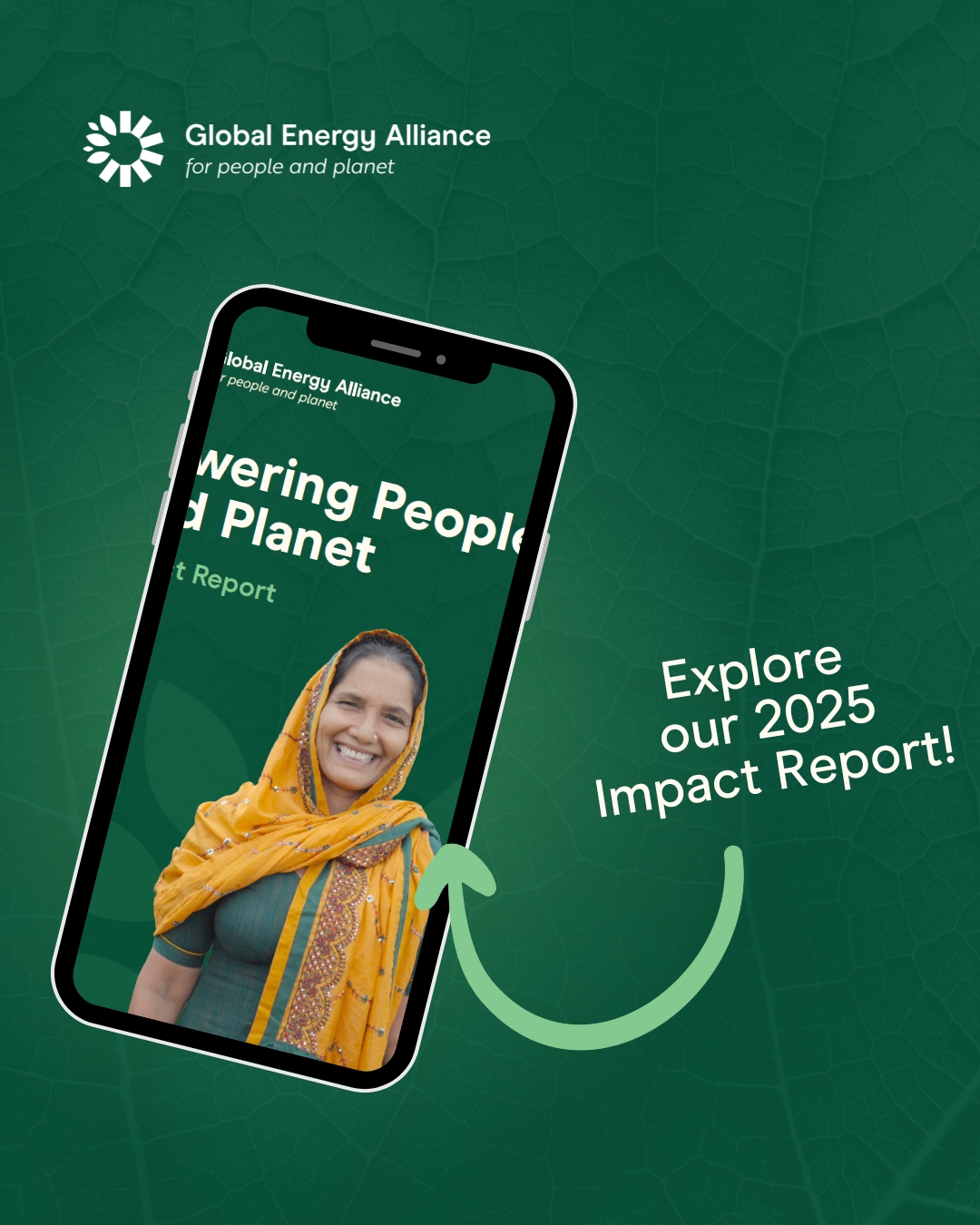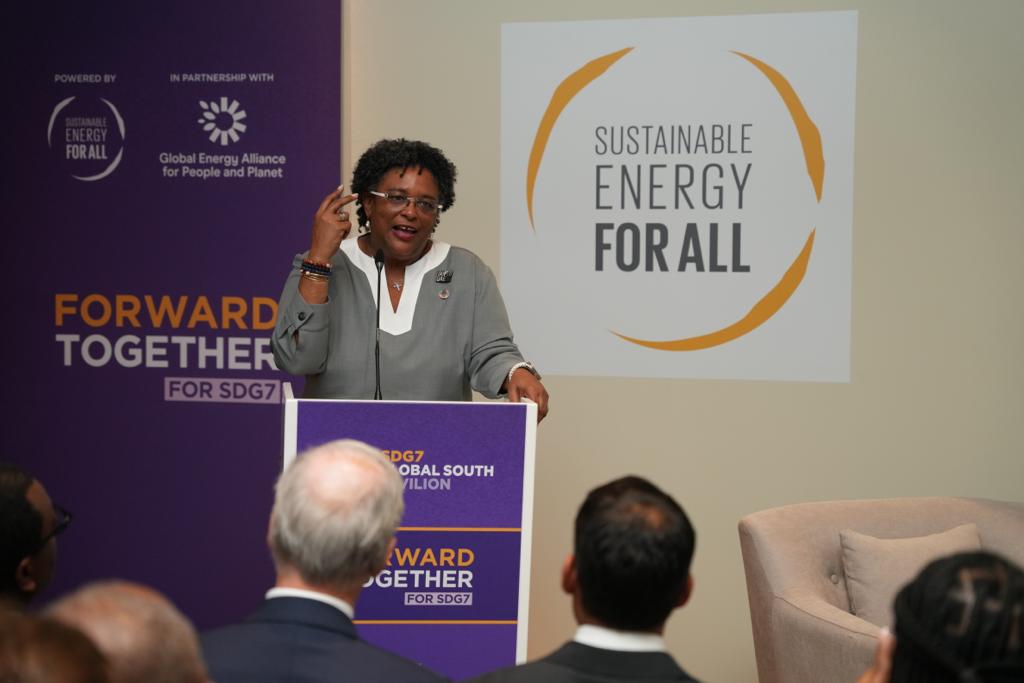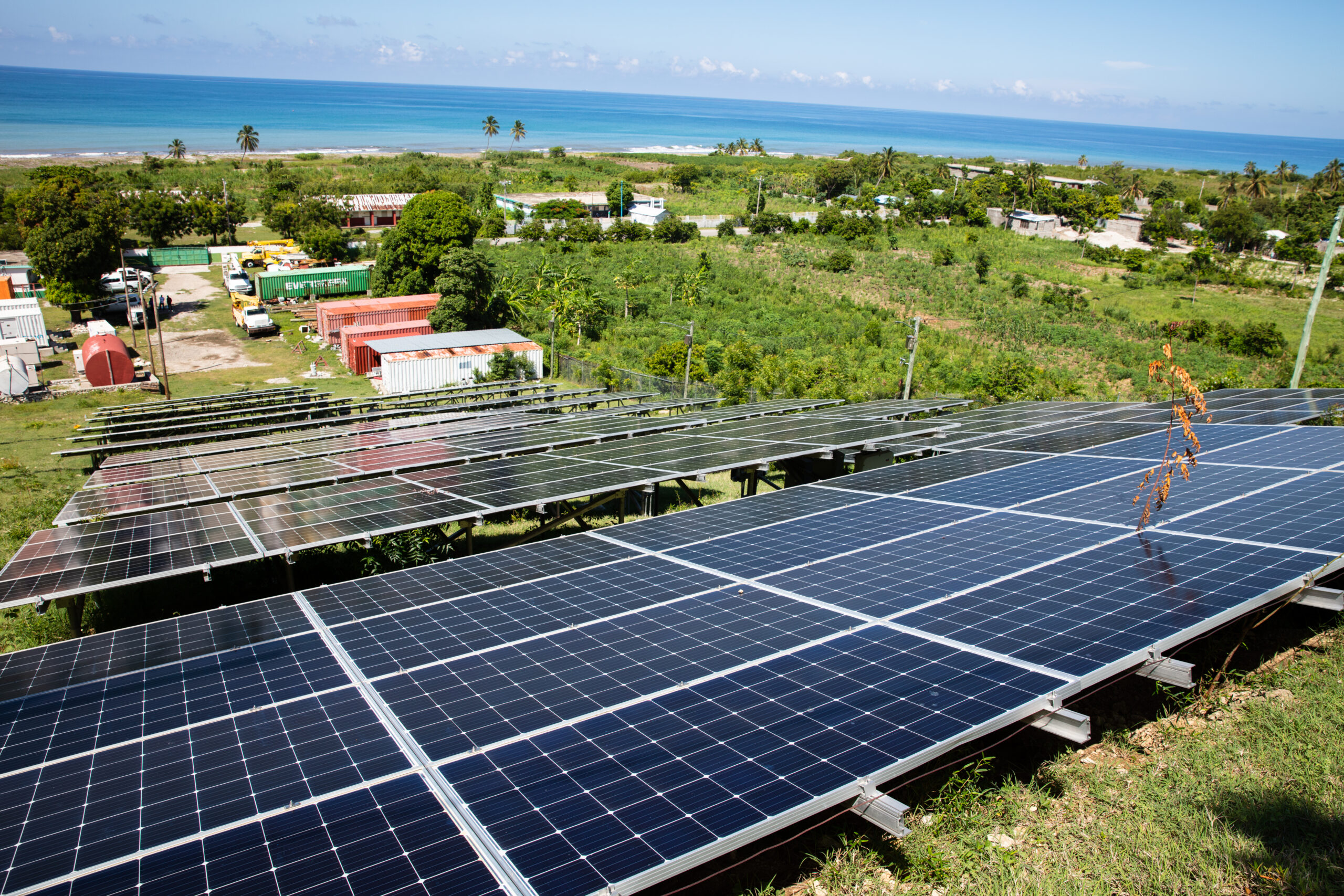Ministry of Energy of Brazil and GEAPP Convene Global Partners in Belém to Support Decarbonization of the Amazon and Just Energy Transition for Latin America and the Caribbean

Belém | 22 November 2024 –Today, at the Energies of the Amazon Conference held in Belém do Pará, Brazil in partnership with the Brazilian Ministry of Mines and Energy, the Global Energy Alliance for People and Planet (GEAPP) launched the Universal Access Coalition and outlined plans for an initial commitment of $3M USD to support Brazil’s equitable energy transition, with a particular focus on the Amazon region. A global leader in the just energy transition, Brazil will convene the UN Climate Change Conference (COP30) in Belém in November 2025.
Alexandre Silveira de Oliveira, Brazil’s Minister of Energy, said: “Bringing renewable, accessible, and high-quality electricity to thousands of Brazilians, especially in the Amazon region, is an obligation and a duty. To fulfill this mission, Brazil relies on two fundamental programs: the first is ensuring access to electricity for families who still lack it, through the Luz para Todos (Light for All) Program. The second – Energias da Amazonia (Energies of the Amazon) focuses on improving the quality of electricity supply in isolated systems in the Amazon region—areas not connected to the national grid and mostly powered by diesel generation, which is polluting, expensive, and highly inefficient. The actions of Energias da Amazônia and Luz para Todos reflect Brazil’s commitment to reducing inequalities, including access to energy, while advancing a just and inclusive energy transition.”
In Brazil, GEAPP’s work with the Ministry of Mines and Energy will enable communities to use sustainable energy sources to grow local economies while replacing costly and polluting diesel generators. This approach addresses the immediate need for clean energy and fosters long-term resilience by supporting local economies and reducing dependency on fossil fuels.
Thiago Barral, Brazil’s Secretary of the Energy Transition, said: “The Energias da Amazônia Program is one of the key initiatives being implemented in Brazil as part of its energy transition journey. The program provides high-quality and reliable electricity supply to the region’s population, decreasing the need for diesel-based energy generation, cutting CO2 emissions, and reducing costs in the Brazilian electricity sector that are ultimately paid by all energy consumers. Identifying synergies and opportunities between energy access programs, such as Luz para Todos, and the improvements in quality and reliability delivered by Energias da Amazônia is a step forward in bringing communities, organizations, and entrepreneurs into the discussion to find innovative solutions that reflect the unique needs of the Amazon region.”
This builds on GEAPP’s work across Latin America and the Caribbean to achieve universal energy access, where approximately eighteen million people lack access to electricity, and another sixty million experience unreliable service. Despite progress in electrification rates, the region faces significant challenges, including uneven infrastructure distribution and socio-economic disparities that prevent access. Many rural areas and urban poor communities remain underserved, exacerbating inequalities and limiting opportunities for sustainable development.
“Our commitment to Brazil is a testament to our belief that the energy transition must be equitable. By focusing on the Amazon and the productive use of energy in local communities, we can help unlock economic opportunities while preserving the region’s vital ecosystems,” said Woochong Um, GEAPP’s CEO. “The opportunity for Latin America and the Caribbean to lead the world in achieving universal access to energy is immense. We must act urgently and collaboratively to ensure that no one is left behind in the energy transition and the Universal Access Coalition is a crucial platform to drive this goal in the region.”
“Two energy realities coexist in Latin America and the Caribbean. In one, energy supports progress and opportunity. In the other, 18 million people—equivalent to the population of Guatemala or Ecuador—live without access to electricity, trapped in poverty, hardship, and unrealized potential,” said Tomás Gonzalez, Former Minister of Mines and Energy of Colombia and Director of the Regional Center of Energy Studies. “Achieving universal access by 2030 will remain out of reach unless we approach this challenge with the same urgency, coordination, and well-funded strategies that have been mobilized for emissions reductions. GEAPP’s mission is to support the creation and implementation of these actionable roadmaps.”
The Universal Access Coalition will bring together a diverse array of stakeholders, including development finance institutions, regional multilateral organizations, non-governmental organizations, academic institutions, private industry, national governments, and civil society advocates. Radical collaboration is essential to addressing the multifaceted barriers to energy access across Latin America and the Caribbean, particularly for marginalized peoples whose struggles are exacerbated by the lack of energy in their communities. The Coalition will focus on resource mobilization, advocacy, capacity building, knowledge sharing and learning.
Fatih Birol, Executive Director of IEA, said: “Brazil has a strong history of implementing successful energy access policies, positioning it well to lead regional efforts on just and secure clean energy transitions. This is exemplified by Minister Silveira’s role as Co-Chair of the IEA’s Global Commission on People-Centred Clean Energy Transitions and Brazil’s leadership in developing the G20 Roadmap for Clean Cooking as G20 President, with the IEA proudly supporting this effort. We at the IEA look forward to continuing our collaboration with the Universal Energy Access Coalition for Latin America, led by GEAPP, and to supporting countries in crafting ambitious policies to close access gaps in electricity and clean cooking across the region.”
“Latin America and the Caribbean has a critical opportunity to push the energy transition forward by ensuring last-mile electrification and local economy development is renewables-based. This is a moment of pride and a chance for the region to demonstrate our commitment to global sustainable development,” said Isabel Beltran Vice President for Latin America at GEAPP. “The Universal Access Coalition calls on stakeholders across the region and global leaders to join us in this crucial endeavor.”
As the region comes together to achieve universal energy access, close collaboration among stakeholders is essential to achieving this goal.
Francesco La Camera, Director-General of IRENA, emphasized that: “Renewables are already playing a crucial role in Latin America and the Caribbean’s energy transition efforts and can become a pillar to expand energy access. Tripling global renewable power capacity by 2030 calls for close collaboration and co-ordination among governments and stakeholders across countries and regions and this initiative by GEAPP marks a crucial milestone that will help lead the way towards securing access to energy for those in need.”
This Universal Access Coalition underscores the need for a truly just energy transition. Addressing the energy access gap in the region requires a focus on communities that have been historically underserved.
Andres Rebolledo, Executive Secretary of OLADE, stated: “The energy transition in Latin America and the Caribbean is not just a matter of technological innovation but a question of justice and equity. By focusing on the sustainable electrification of rural and underserved communities, we are addressing the pressing needs of the people while protecting the environment. As OLADE, we understand we have a huge responsibility and a vital role in helping all regional countries address 100% electrification. Therefore, we are committed to supporting the Universal Access Coalition, which fosters collaboration across sectors and ensures that no one is left behind in the journey towards universal energy access and a sustainable, low-carbon future in Latin America and the Caribbean.”
About Global Energy Alliance for People and Planet (GEAPP):
The Global Energy Alliance for People and Planet (GEAPP) is an alliance of philanthropy, governments, technology, policy, and financing partners. Our common mission is to enable emerging and developed economies to shift to a clean energy, pro-growth model that accelerates universal energy access and inclusive economic growth while supporting the global community to meet critical climate goals during the next decade. As an Alliance, we aim to reduce 4 gigatons of future carbon emissions, expand clean energy access to one billion people, and enable 150 million new jobs. With philanthropic partners the IKEA Foundation, The Rockefeller Foundation and Bezos Earth Fund, GEAPP works to build the enabling environment, capacity, and market conditions for private sector solutions, catalyze new business models through innovation and entrepreneurship, and deploy high-risk capital to encourage private sector solutions and assist just transition solutions. For more information, please visit www.energyalliance.org and follow on X at @EnergyAlliance.
About Ministry of Energy of Brazil
The Ministry of Mines and Energy is a direct federal public administration body in Brazil, responsible for overseeing energy and mineral policies, which encompass various areas with a direct impact on Brazilian society. Its responsibilities include: national policies for utilizing energy resources, including hydro, wind, solar, nuclear, and other sources; integration of the electricity system; exploration and production of mineral and energy resources, petroleum, fuel, biofuels, and natural gas; and coordination of sustainability and economic, social, and environmental development actions in the electrical, energy, and mineral resources sectors. The ministry manages tariff policies for the electricity sector, promotes energy integration with other countries, and sets guidelines for planning in the mining and energy sectors. It also coordinates the policy for universal access to and use of electricity, including rural electrification. Through its technical team, the ministry engages in international negotiations related to mining and energy sectors, fosters the development and adoption of new technologies in these fields, and works to balance the structural and short-term supply and demand of electricity in the country.
Media Contacts
- Global Energy Alliance for People and Planet (GEAPP), Eric Gay: media@energyalliance.org



